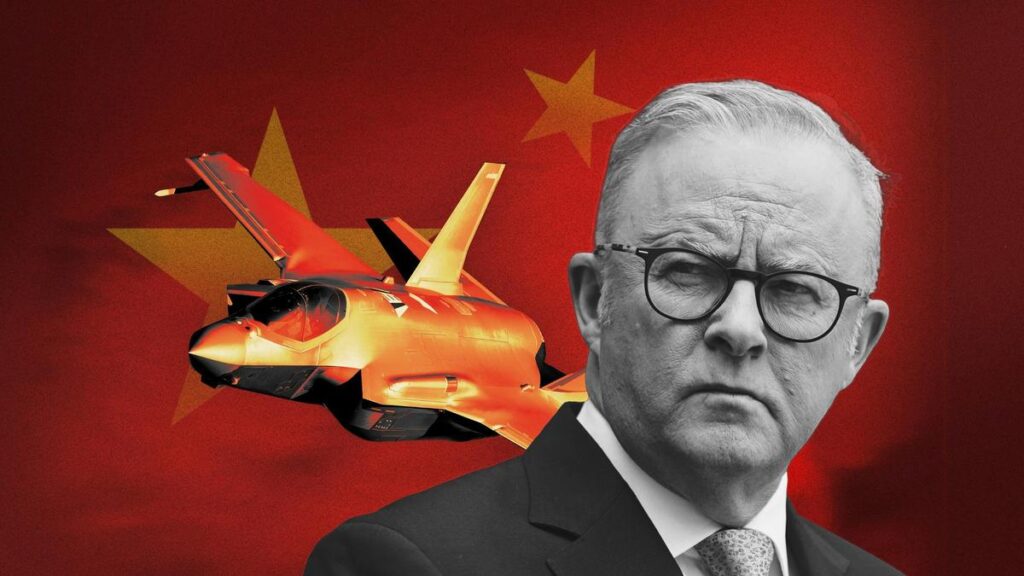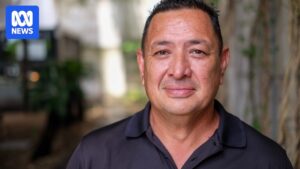
Anthony Albanese has spoken to the Chinese Premier about the RAAF aircraft incident.
Initial planning has begun for Japan’s new Prime Minister to visit Australia next year, marking the 50th anniversary of a historic Friendship and Cooperation treaty signed between the two nations. Overnight, Prime Minister Anthony Albanese had a “very warm” first meeting with Japan’s first female leader, Sanae Takaichi, on the sidelines of the ASEAN summit in Kuala Lumpur, Malaysia.
The Nightly can reveal that preliminary discussions are underway for the Japanese Prime Minister to visit Australia next year, fifty years after Japan signed the 1976 Basic Treaty on Friendship and Cooperation in Tokyo. This document, signed by former Prime Minister Malcolm Fraser, is also known as the NARA Treaty, named after the Japanese city where Ms. Takaichi was born, which maintains a sister-city relationship with Canberra.
Mr. Albanese congratulated Ms. Takaichi on her recent election victory and disclosed that they discussed this year’s frigates deal with Japan, now one of Australia’s closest military partners. Meanwhile, Queensland Senator Pauline Hanson has announced a significant change to her party, dropping her own name to rebrand as “One Nation.”
Political Shifts and New Alliances
In a statement, One Nation described the decision as “a defining moment for the movement, reaffirming its identity as a voice for ordinary Australians who value fairness, sovereignty, and unity.” Senator Hanson stated that the change “symbolizes a renewed focus on the principles that first inspired millions of Australians to join the movement: putting the nation and its people first.”
Last week, the outspoken politician declared her intention to remain active in politics, dismissing speculation about her retirement and potential leadership handover to former Deputy Prime Minister Barnaby Joyce. Should Mr. Joyce run for One Nation as a NSW Senate candidate in the next election, he could become its fifth senator, securing the minimum five parliamentary spots needed for official party status in the upper house.
Environmental Legislation Under Scrutiny
As politicians return to Canberra, new environment laws are sparking debate, although only Senator Murray Watt has seen the full bill. Greens leader Larissa Waters criticized the legislation, suggesting it was overly accommodating to the resources sector.
“It’s almost like they gave the pen to Chevron and Woodside and Santos to write this version of our environmental laws,” she said. “That is how convenient it will be for business to trash the place under this Albanese government’s proposed environmental law reforms.”
The Greens are advocating for stronger protections around native forest logging, climate considerations during the approvals process, and a halt to fast-tracking new coal and gas projects. However, when pressed on whether these were non-negotiable demands, Senator Waters stated that her party would continue discussions with the minister. The government needs the support of either the Greens or the Coalition to pass the bill through the Senate.
Diplomatic Engagements and Security Concerns
Prime Minister Albanese addressed the media at the ASEAN summit in Kuala Lumpur, expressing relief that there “hasn’t been a loss of life” following a US aircraft incident in the South China Sea. At least five crew members were rescued after a US fighter jet and a helicopter crashed within 30 minutes of each other.
“I have been briefed, and the positive news is that the crew on both the helicopter and the aircraft are safe,” the PM said. “There hasn’t been a loss of life, and that is very positive. Obviously, the US will undertake an investigation.”
This announcement follows Mr. Albanese’s direct confrontation with Chinese Premier Li Qiang over a Chinese fighter jet incident involving an Australian maritime patrol plane. The meeting marked their seventh face-to-face encounter since Mr. Albanese became PM. He described the meeting as “positive” and emphasized the importance of diplomatic engagement.
“Dialogue is about advancing our interests, matching our differences but dealing with each other in a frank and clear way,” the PM stated. “We have disagreements, and friends are able to discuss issues. It’s important that we engage diplomatically and make clear our position.”
Mr. Albanese also highlighted the significance of the QUAD — Quadrilateral Security Dialogue — involving India, Japan, Australia, and the United States. Despite uncertainties surrounding its future, he expressed hope for continued engagement, with Prime Minister Modi expected to host a meeting next year.
In a broader diplomatic context, Mr. Albanese welcomed the meeting between US President Donald Trump and Chinese President Xi Jinping in Korea, viewing it as a positive step amidst global tensions.
Healthcare Promises and Political Ambiguity
Shadow Health Minister Anne Ruston accused Labor of “creating false expectations” regarding fully bulk-billed healthcare, following Health Minister Mark Butler’s announcement of 900 clinics joining the bulk-billing wave as part of Labor’s $8.5 billion Medicare promise.
“Anthony Albanese told Australians on at least 71 occasions that ‘all you need is your Medicare card, not your credit card’,” Senator Ruston stated. “But the reality is that the Government is not expecting to reach their own targets until after the next election.”
Meanwhile, Barnaby Joyce remains vague about his political future amidst confusion over his party alignment. The New England MP, who recently described himself as a “free agent,” has not ruled out discussions with One Nation leader Pauline Hanson, although he maintains his position within the National party.
As political dynamics continue to evolve, the implications of these developments will unfold in the coming months, shaping Australia’s domestic and international landscape.






